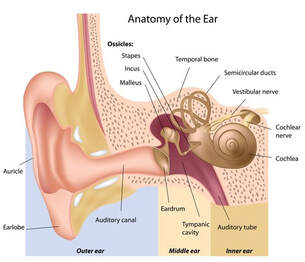Premier Care Homecare is proud to offer a Vestibular Rehabilitation and Balance Program for patients with dizziness and imbalance symptoms in the home setting. Vestibular Rehabilitation is an exercise treatment program that attempts to decrease dizziness and improve symptoms that may contribute to a loss of balance.
It is prescribed by a physician for patients that meet the Medicare requirements for homebound status Premier Care Homecare offers a certified trained physical therapist who conducts a comprehensive evaluation and designs a specific, individualized exercise treatment program to improve the vestibular and imbalance problems.
|
Program Services:
|
Vestibular diagnosis amenable to Vestibular Rehabilitation include:
- BPPV (Benign Paroxysmal Positional Vertigo)
- Unilateral vestibular hypofunction/loss (acute labyrinthitis, neuronitis, acoustic neuroma S/P translabyrinthectomy, vestibular nerve section)
- Bilateral vestibular hypofunction/loss (ototoxity)
Diagnosis with poor response to vestibular treatment include:
Mixed peripheral and central lesions, fluctuating peripheral lesions, head injuries, poor compliancy with home exercise program. Perilymph fistula is contraindicated for vestibular rehabiliation.
Mixed peripheral and central lesions, fluctuating peripheral lesions, head injuries, poor compliancy with home exercise program. Perilymph fistula is contraindicated for vestibular rehabiliation.
Program Goals
- Decrease dizziness
- Improve balance and safety
- Increase activity levels
- Improve overall general physical condition of each patient
Some vestibular disorders may improve in several weeks, while others may take months or years to improve depending on the diagnosis. Some symptoms may decrease but may not be improved. The goal of vestibular physical therapy is to return your patient to the optimal level of function in daily activities.
Patients will lesson their symptoms by practicing their prescribed exercises at home everyday. By regularly doing exercises learned in physical therapy, a patient's central nervous system begins to compensate or adapt.
The physical therapist conducts visits as outlined in the physical therapy plan of care for your patient and continues to reassess symptoms. Additional exercises are given as they continue to improve. If a patient is not progressing with vestibular rehabilitation, an otology consult may be requested by the treating therapist.
